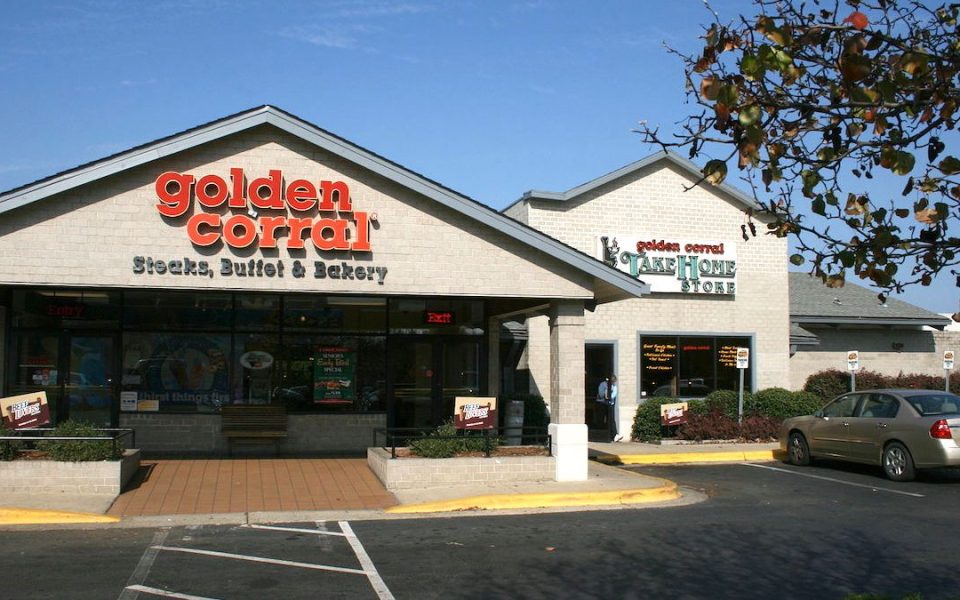People adore having a love/hate relationship with corporate chain restaurants, and it shows. Giving money to a corporation over a small business oftentimes feels like a betrayal to the local food scene, and the stalwarts of the small-business community.
But bear with me: There is something magical, albeit economical, about restaurant chains. There is something comforting about the consistency that corporate chains provide. No matter where you are in the country — or the world, in some cases — the food will taste the same.
What does a corporate chain taste like? It’s greasy, deep-fried, sprinkled with iodized salt and smothered in cheese that may have been microwaved. It tastes like salt and sugar and processed preservatives. It has a lot of happy memories tucked into it. It’s not as good as refined international cuisine, and yet we love it. The architecture of the building, the neon glow of the sign, the appearance of a familiar mascot or the nostalgia evoked from walking through the doors warms our hearts.
Everybody has an association with McDonald’s fries.
On the other hand, local restaurants are constantly changing with the seasons; the food is held to a higher standard and there is a perception that local is always good, always better and usually best. There’s a line drawn in the sand pitting local and corporate against each other as if the two cannot live together on the same side of the street.
Part of the reason I think chain food gets a bad rep is because this day and age, people are food snobs. Dining out solely at high-end or independent restaurants gives people the social cachet — they tell their friends about it, post about it, feel good and worthy of the experience. It’s cathartic to take a photo of your meal from a local restaurant, post it on social media and know the owner is watching. All things considered, it’s just food. You’re not saving souls or serving social justice. People forget that the owners, managers and restaurateurs of corporate spots still live in our neighborhoods, work in our community, pay taxes, and the dollars that are spent in those spots are put right back into the community through the people who work there.
What makes a restaurant independent or corporate anyhow? Restaurants like K&W Cafeteria or Village Tavern with regional and international locations have far reach, but all of them are company-owned and, in some cases, family-owned. The Fresh Market began as a locally owned company but sold the company’s assets to a larger corporation in order to build capital for investors and wealth for future generations, which is what we all want. By spending dollars at local establishments those dollars go to that purpose.
Believe it or not, the Triad is a test market for different national restaurant groups. For example, the first prototype for Golden Corral, a North Carolina-based corporation with nearly 500 locations in 42 states, was built in Greensboro. The prototype boasted a contemporary appearance for the interior and exterior with improved layouts for the dining room, kitchen in order to improve service and efficiency. Get ’em in, get ’em out. McDonald’s tested all-day breakfast in the Triad. Most recently, Chick-fil-A tested its new macaroni and cheese in Greensboro. KFC began the chicken sandwich wars of 2019 with the Cheetos chicken sandwich test back in January.
What springs forth from these types of cultural phenomena are secret menus. It’s a culture that has slowly trickled to independent food outlets but the public still craves more.
Online forums and local news publications constantly ask people what our food community needs, and there is always a fervent response mentioning national chains that haven’t made their way to the Piedmont or global food options that are not available. What many do not understand is that in order for a particular cuisine or style of food to exist, the community has to support it. We cannot have a thriving restaurant community of international restaurants if the dining patrons and indigenous cooks do not live in the area.
Until the two ends of the fitted sheet can meet in the middle, the battle will continue.
Join the First Amendment Society, a membership that goes directly to funding TCB‘s newsroom.
We believe that reporting can save the world.
The TCB First Amendment Society recognizes the vital role of a free, unfettered press with a bundling of local experiences designed to build community, and unique engagements with our newsroom that will help you understand, and shape, local journalism’s critical role in uplifting the people in our cities.
All revenue goes directly into the newsroom as reporters’ salaries and freelance commissions.


It tastes like I can afford to feed a family of four which includes two older teenagers and a former Marine. ¯_(ツ)_/¯